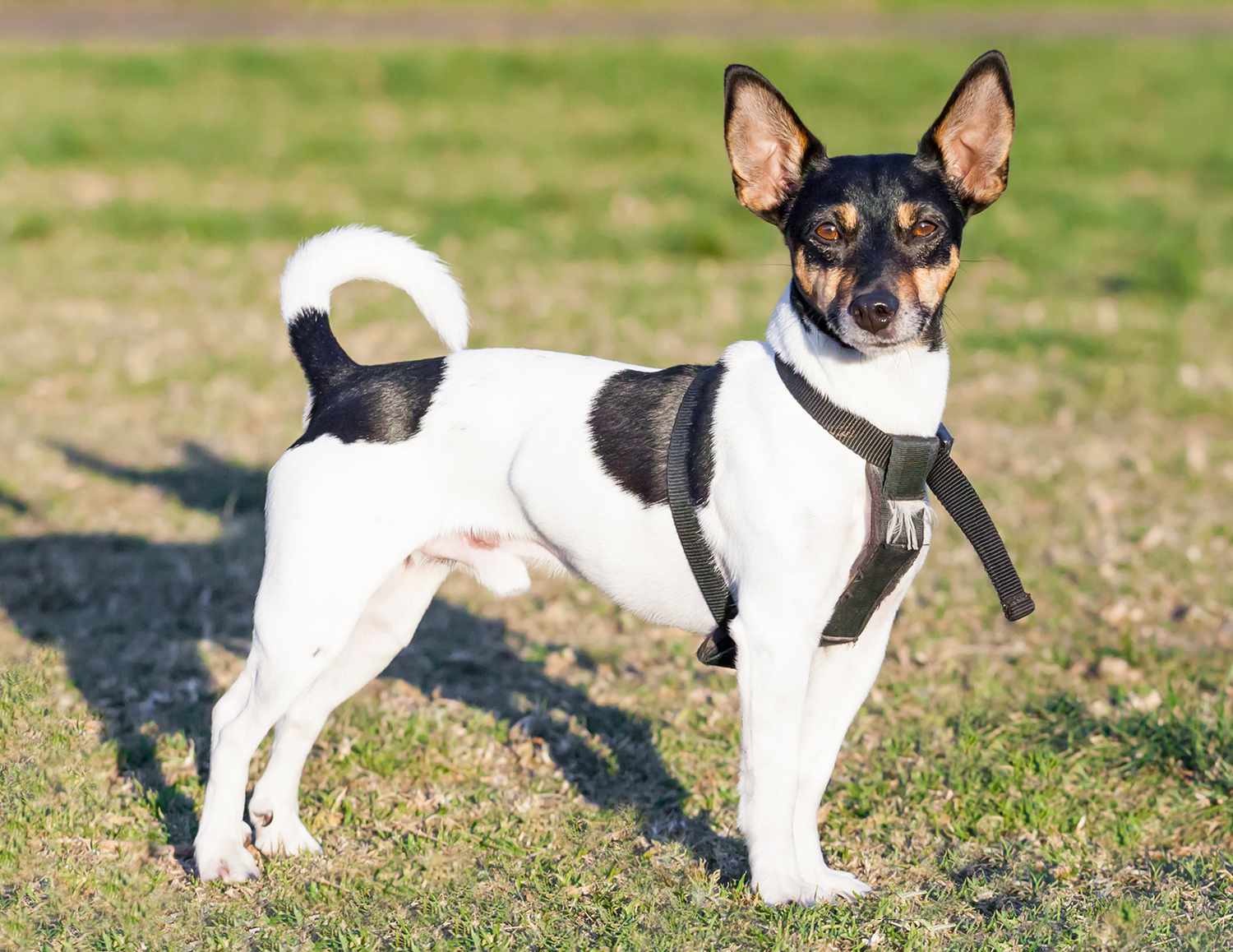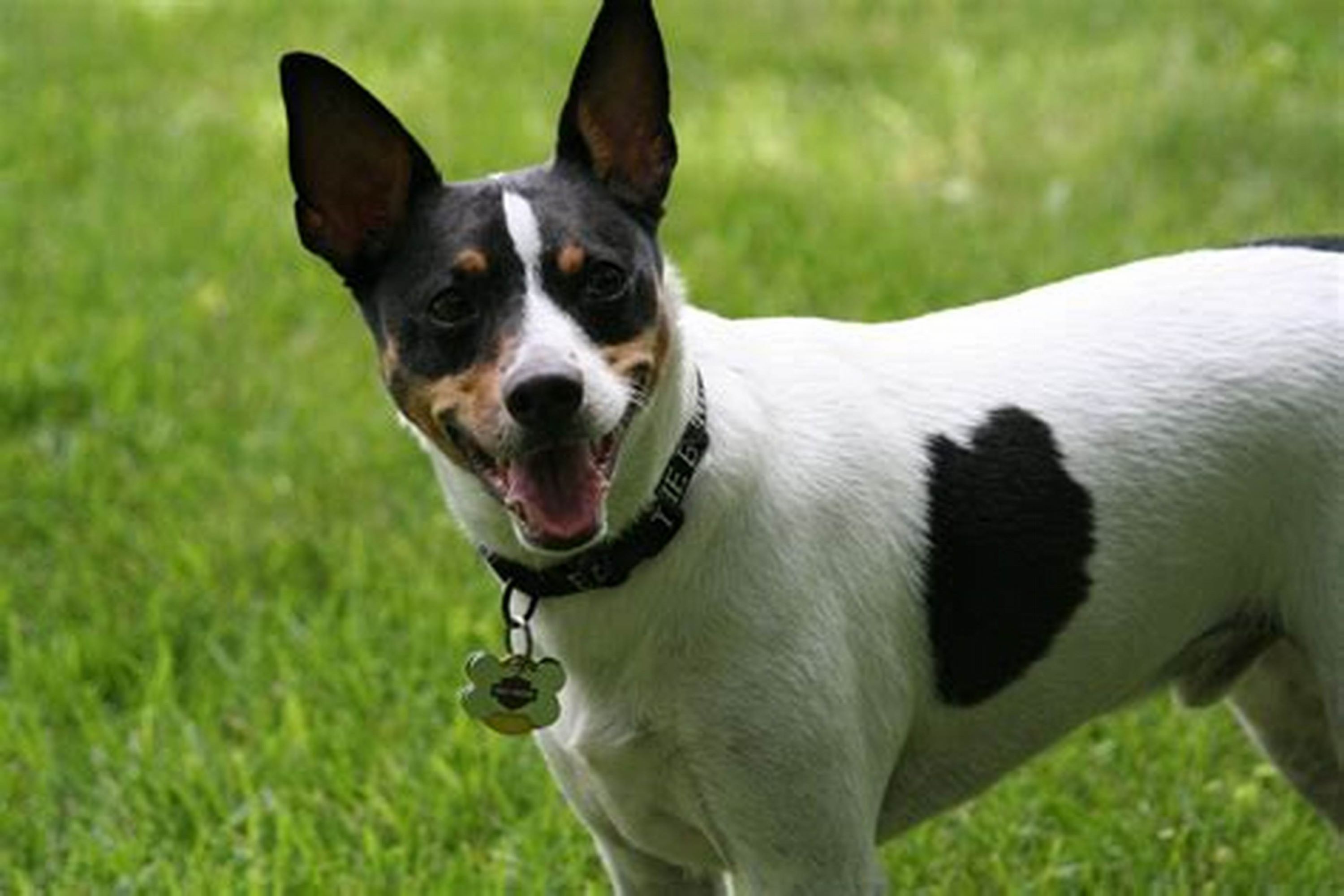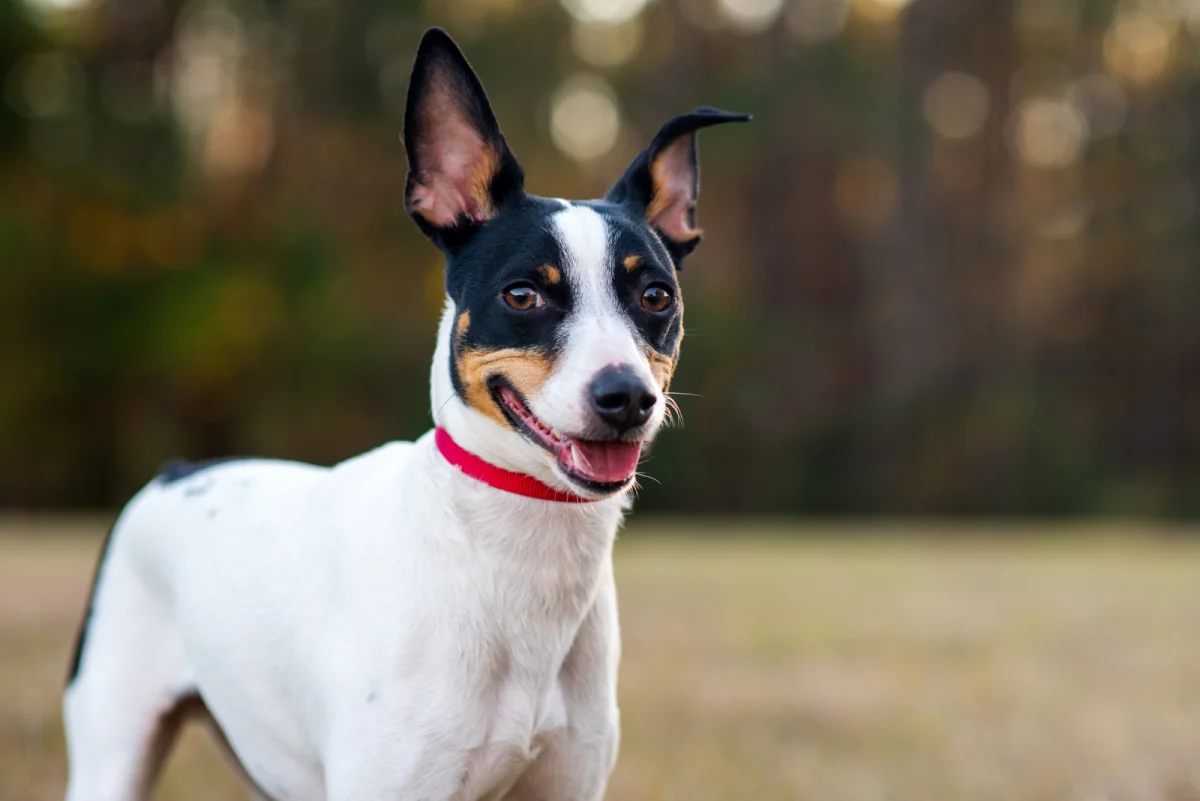
The Rat Terrier is a classic American breed, originally developed for farm work, pest control, and as a general-purpose companion.
Emerging in the early 1900s, Rat Terriers descended from mixes of Smooth Fox Terriers, Manchester Terriers, and later, Beagles, Whippets, and Italian Greyhounds to improve speed and scenting ability. President Theodore Roosevelt even owned a Rat Terrier and is said to have helped popularize the breed, famously using them for clearing rats from the White House.
For decades, Rat Terriers thrived on farms across the United States, valued for their tenacity with vermin, adaptability, and affectionate personality.
The breed suffered a decline post-World War II with the rise of chemical pest control but saw a resurgence thanks to preservation efforts by enthusiasts. Today, it is recognized by the American Kennel Club (AKC) and remains a beloved companion and working dog.
The Rat Terrier is well-loved in rural areas and steadily gaining popularity in suburban and even urban settings.
They are known for being intelligent, low-maintenance, and lively, making them excellent family companions for those who enjoy an active lifestyle.
The Rat Terrier is a small-to-medium-sized, athletic dog built for speed, agility, and endurance.
• Height: 10–18 inches (25–46 cm)
• Weight: 10–25 pounds (4.5–11 kg)
• Build: Compact, muscular, agile
• Coat: Short, smooth, and dense
• Colors: Wide variety — often black with tan and white, but can include red, chocolate, blue, or lemon with piebald markings
• Head: Slightly domed skull, strong jaw
• Eyes: Bright and alert, ranging from dark brown to hazel
• Ears: Erect or buttoned
• Tail: Can be natural, bobbed, or docked depending on tradition and breeder
This breed is known for its bright personality and strong work ethic.
• Intelligent: Highly trainable and quick to learn
• Energetic: Needs regular activity to stay happy
• Playful: Loves games and interactive play
• Alert and Watchful: Makes an excellent watchdog
• Affectionate: Bonds closely with family
• Sociable: Generally good with children and other pets when properly socialized
They can sometimes show a stubborn streak but respond well to positive, reward-based training.

Rat Terriers are perfect for those seeking a clever, lively, and low-shedding companion who can keep up with an active lifestyle.
Ideal for:
• Families with children
• People seeking a watchdog with minimal aggression
• Farmers, homesteaders, and hobbyists who want natural pest control
• Dog sports competitors (agility, obedience, flyball)
Not ideal for:
• Those who prefer low-energy, couch-potato dogs
• Owners unwilling to offer daily exercise and mental stimulation
• Exercise: Needs daily walks, play sessions, and mental challenges
• Training: Thrives with consistent, positive training methods
• Grooming: Minimal — occasional brushing and baths as needed
• Living Environment: Adaptable to homes, farms, or apartments (with enough exercise)
• Feeding: High-quality diet appropriate for active small-to-medium dogs
Rat Terriers are generally healthy and long-lived, often reaching 15–18 years. Potential health concerns include:
• Hip dysplasia
• Luxating patellas (slipped kneecaps)
• Allergies
• Demodectic mange (especially in puppies, usually outgrown)
Routine vet care and good breeding practices help minimize health issues.

• Jack Russell Terrier: Rat Terriers are generally calmer and easier to train.
• Miniature Pinscher: Similar size, but the Rat Terrier has a stronger prey drive and more rural working instincts.
• Toy Fox Terrier: Close relative, but Rat Terriers are sturdier and more diverse in their working abilities.
Choose a Rat Terrier if you want an intelligent, affectionate, athletic companion who thrives on family life and outdoor fun.
Avoid if you prefer a quiet, sedentary breed or dislike a dog with a strong prey drive.
They are available through reputable breeders, breed-specific rescues, and occasionally shelters. As always, ensure your Rat Terrier comes from a responsible breeder who health-tests breeding stock.
United Pet Club can help with pet passports, microchip registration, and travel arrangements if you're planning to bring home a Rat Terrier internationally.